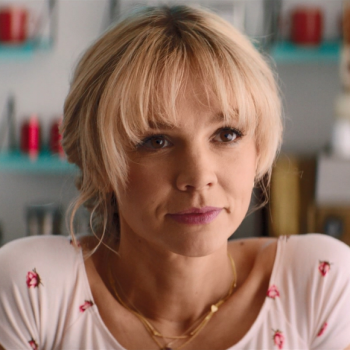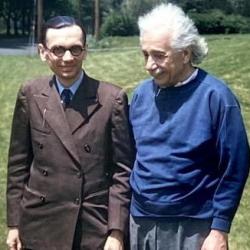With an ironic take on televangelist religion and a vigorous social conscience, Reverend Billy and the Church of Life After Shopping have become icons for the growing community of people who think of themselves as "spiritual but not religious." This phenomenon, which many observers have dismissed as self-indulgent and apolitical, reveals itself in this case to be anything but.
F the Fare Hike
It certainly isn't unheard of for a successful preacher to find his way into politics. In the early 1980s, Jerry Falwell changed the face of the Republican party with his Moral Majority. Pat Robertson ran for president in 1988, as did Mike Huckabee in 2008. Aspiring beyond the merely pastoral therefore seems very much within the purview of Reverend Billy's act.
"It's the occasion for speaking in a visionary way," says Talen. When the Green Party approached him and Durkee about running for mayor over a meal at a Windsor Terrace bistro, they saw it as not so different from the performance-based activism they'd already been doing for years. "We thought that the city government of New York in 2009 was a lot like Wal-Mart was in 2007 and Starbucks in 2005," he says.
The campaign's biggest push was in the summer, when volunteers flocked to help secure the 7,500 signatures required to get on the ballot (the Naked Cowboy, another Times Square fixture, was overwhelmed by the paperwork and withdrew his own bid). Since then, the team has winnowed down to a smaller and more committed core. They keep busy with benefit parties, rallies, and performances. On Halloween, just before the November 3rd election, they lead the "Zomberg Rampage," a parade that they hoped would draw "thousands of rampaging Bloomberg zombies."
To reach out to the masses, Reverend Billy, Durkee as Sister Savitri D., and a handful of green-robed choir members, take to the city subways for a series of whistle stop tours. Like panhandlers or mariachi bands, they stay in each car for only a stop or two, giving a short spiel, singing a song, and shaking hands before moving on to the next one. The tours take their theme from the trains they're on, like "F the Fare Hike," "Neighborhoods on the N Train," and "2 Train for 2 Terms."
Talen insists that he is serious about presenting himself as a prospective mayor, though he has so far done little of the hobnobbing with power brokers requisite for winning broad support. He hasn't met, for example, many of the city's leading religious leaders, even though one might expect Reverend Billy to find in them potential allies.
The campaign has kept its distance, too, from political circles. Durkee finds their attitude toward winning elections "really boring." "It's like hanging out with people who just want to make money," she says. "I don't appreciate being in a group where the motive is so clear."
The framework of a mayoral campaign has put some constraints on the group's normal way of operating. They've had less time for the choir's usual theatrical work, for instance, and Durkee gets frustrated working within the limits of the political system. "I'm [more] aware of the liberation of performance and activism, the value of being an outside agent," she says.
For the most part, though, they're using the campaign to do more of what they have done for the past decade: reaching out to people on the streets and "talking," says Talen, "about the homemade spirituality of a funky, fascinating, messy democracy." Gesturing toward a world beyond the Shopocalypse, Reverend Billy calls out the unquestioned perversity of consumer culture. The beyond he points to is not a celestial afterlife, but a neighborhood, and we need only act like neighbors.
"We're trying to get people to flex their citizen muscle a little bit," adds Durkee. "Don't roll over. No."
Watch a video of the author's interview with Rev. Billy here.
Watch a video of Glenn Beck's interview with Rev. Billy here.




